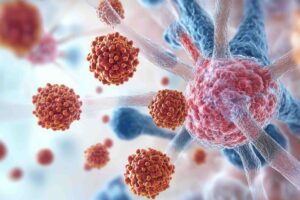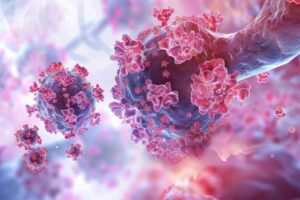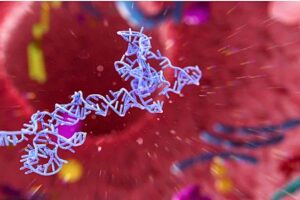Gastroenterology, Video
Professor Maria Rescigno explores the critical role of the gut microbiota in maintaining intestinal barrier integrity and its implications for health.
Oncology
Specific gut microbiota features correlate with better responses to immunotherapy in people with melanoma.
Video, Events
Nathalie Maria Delzenne from Université Catholique de Louvain (Belgium) explains how gut microbiota and systemic inflammation impact cravings and depressive symptoms in affected individuals.
Industry, Oncology
The study revealed that MS-20 dramatically improved treatment outcomes, tripling the objective response rate (ORR) to 75% when combined with Keytruda.
Scientific research
Including microbial load in microbiota studies can help researchers better understand how gut bacteria influence diseases, leading to more accurate diagnoses and effective treatments.
Gastroenterology, Pediatrics
The findings highlight the importance of maintaining a healthy microbiota after EEN and suggest that personalized dietary approaches can help induce remission for children with Crohn’s disease.
Gastroenterology, Events
Konstantinos Paraskevopoulos (European Food Security Autority, EFSA) underscores the importance of microbiome data in assessing the safety of food and feed products across the agri-food chain.
Neuroscience, Scientific research
The findings suggest that gut microbes and LPC are potential therapeutic targets for Alzheimer's disease.
Gastroenterology, Scientific research
Researchers have identified a new class of virus-like agents known as "obelisks" in oral and stool samples from hundred of people.
Gastroenterology, Events
Heather Armstrong, from University of Manitoba and University of Alberta (Canada), explores the intricate role of dietary fibers in maintaining gut health, focusing on the microbiome’s ability to process these…











